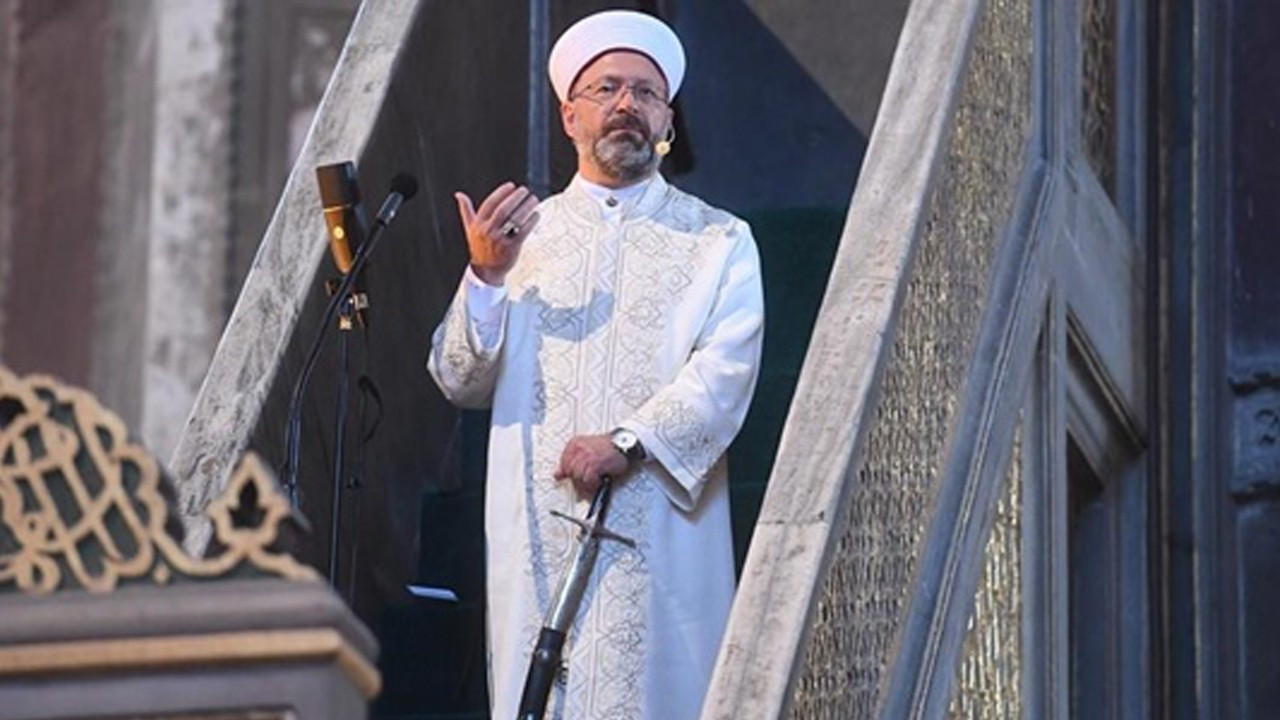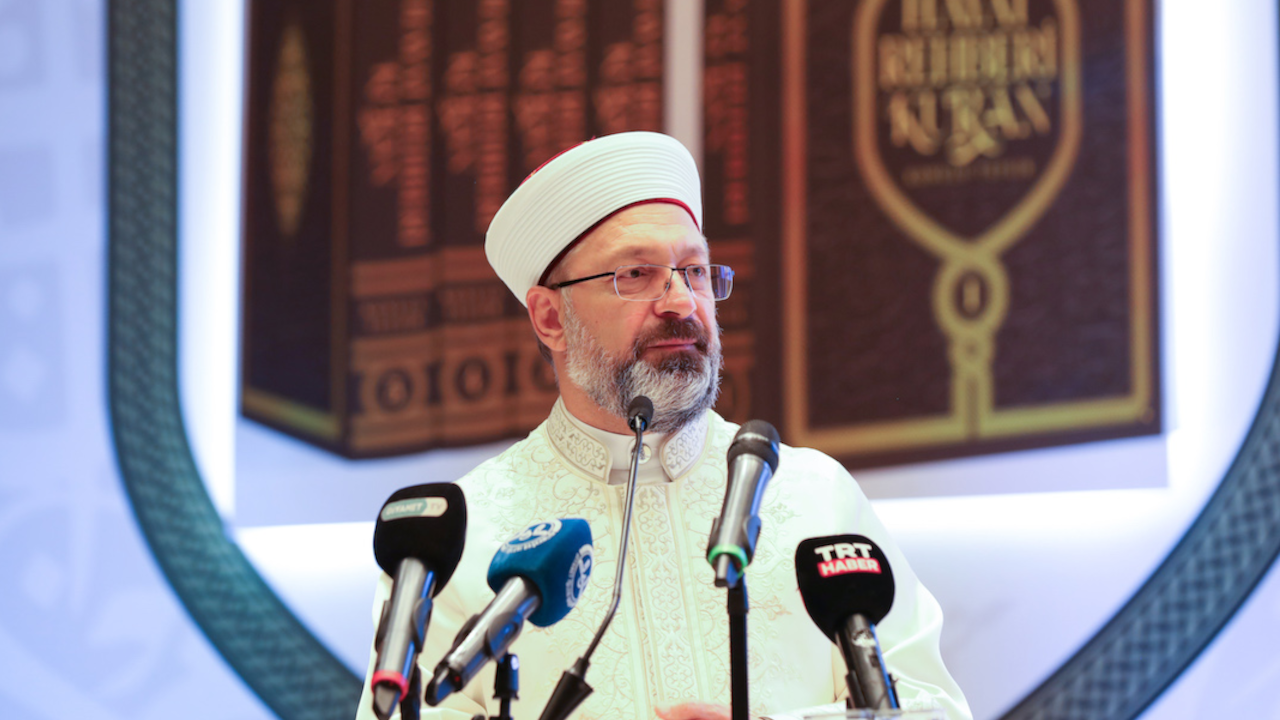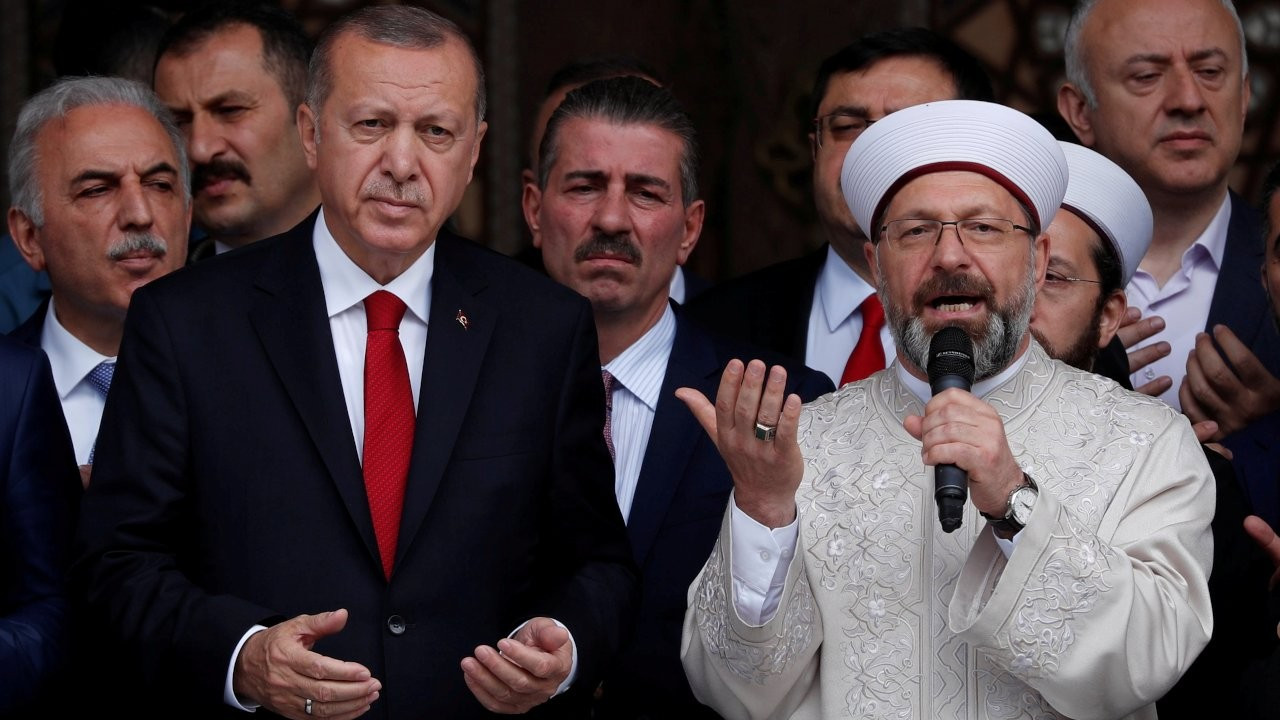Turkey’s top religious body to expand globally, establish 17 new branches
According to an announcement published in Turkey’s official newspaper, the Turkish Religious Directorate (Diyanet), led by Ali Erbaş, plans to establish 17 new branches in countries around the world, from America to Asia. The announcement marks another move in the expanding, international power of the directorate.
Duvar English
According to an announcement published in the Turkish government’s official newspaper, Diyanet, the country’s Islamic religious directorate, plans to open 17 new branches in countries from Sao Paolo to Los Angeles, to Budapest.
The announcement comes as Diyanet has rapidly expanded its purview - the directorate in recent weeks has made announcements on everything from schools, to cuisine, to social media use. This marks a broad expansion of Diyanet’s influence abroad.
Diyanet’s planned budget for 2022 will increase by 3.2 billion Turkish Liras to 16.1 billion Liras next year, making it better funded than most government ministries (including the Ministry of the Interior and the Foreign Ministry). This expanded budget has come with a massive expansion in authority. Diyanet, under the leadership of Ali Erbaş, has become like a governing arm, issuing decrees that govern citizens' everyday lives.
Last week, at the UN General Assembly, Diyanet’s increasing international role was on full display. At the opening of “Turkish House” - a Turkish government-funded skyscraper in New York - Erbaş prayed after President Recep Tayyip Erdoğan spoke, blessing the building. Now, with the announcement of Diyanet’s new, international centers, that role has been cemented. With these new centers, Diyanet is likely to become a new, religious mechanism of Turkish diplomacy, expanding the ruling Justice and Development (AKP) government’s influence abroad.
According to the announcement, 11 religious services consultancy offices will be opened in Dhaka, Jakarta, Ottawa, Budapest, Yaounde, Dar es Salaam, Warsaw, Helsinki, Bangkok, Manila, and Vagadugu. Siz religious service attache offices will be opened in Los Angeles, Sao Paulo, Jerusalem, Barcelona, Plovdiv, and Odessa, bringing the total number of new centers to 17.
Opposition lawmakers reacted to this announcement - as they have reacted to many of Diyanet’s announcements of late - with condemnation. Main opposition Republican People's Party (CHP) Artvin Deputy Uğur Bayraktutan said they were already turning the Diyanet into a government arm of the ruling coalition (the People’s Alliance) - now they are trying to do it internationally.
“We were already saying that they were turning Diyanet into the third branch of the People's Alliance,” he said. “It seems that our borders were not sufficient for this. Instead of following the idea of 'peace at home, peace in the world', they follow the idea of ‘Ikhwan’ [Muslim brotherhood or army].”
Bayraktutan further said that the announcement was a move away from secular international governance. As the government is losing support at home and abroad, he said, this is a move towards a different kind of governance.

 Audit reveals irregularities in tenders held by Turkey's top religious bodyPolitics
Audit reveals irregularities in tenders held by Turkey's top religious bodyPolitics Turkish gov't spends 93m liras on establishment of training schools for Diyanet staff in three yearsCulture
Turkish gov't spends 93m liras on establishment of training schools for Diyanet staff in three yearsCulture Turkey's top Islamic cleric takes center stage, irking secularistsPolitics
Turkey's top Islamic cleric takes center stage, irking secularistsPolitics Turkish top cleric yet again takes stage at official ceremony, recites prayerPolitics
Turkish top cleric yet again takes stage at official ceremony, recites prayerPolitics